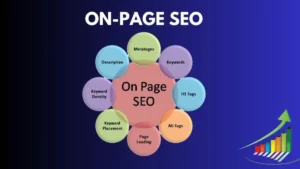Google SEO (Search Engine Optimization) is a critical practice for businesses and individuals aiming to improve their online visibility and attract more organic traffic. Understanding and implementing effective SEO strategies can significantly impact your website’s ranking on Google’s search engine results pages (SERPs). This article delves into the essential aspects of Google SEO, best practices, tools, and future trends to help you optimize your website for success.
Understanding Google SEO

Read more: SEO Services in Madurai Unlock Your Business’s Online Potential
Definition and Basic Concepts of SEO
SEO is the process of optimizing a website to improve its visibility on search engines. This involves various techniques and strategies designed to make your site more attractive to search engines like Google. The primary goal of SEO is to drive organic (non-paid) traffic to your site by achieving higher rankings on SERPs.
How Google Search Works
Google uses complex algorithms to crawl, index, and rank websites based on various factors. These algorithms are designed to deliver the most relevant and high-quality results to users’ search queries. Understanding how Google search works can help you optimize your website more effectively.
Key Components of Google’s Search Algorithm
Google’s search algorithm considers numerous factors when ranking websites. Some of the key components include:
- Relevance: How well your content matches the user’s search query.
- Quality: The overall quality and credibility of your website.
- User Experience: Factors such as site speed, mobile-friendliness, and ease of navigation.
- Backlinks: The quantity and quality of external links pointing to your site.
Key Elements of Google SEO
Keyword Research
Keyword research is the foundation of any successful SEO strategy. It involves identifying the terms and phrases that potential customers use to search for products or services related to your business. Use tools like Google Keyword Planner, Ahrefs, and SEMrush to find relevant keywords with high search volume and low competition.
On-Page SEO

On-page SEO focuses on optimizing individual web pages to improve their search engine rankings. Key elements include:
- Title Tags: Ensure your title tags are descriptive, keyword-rich, and unique for each page.
- Meta Descriptions: Write compelling meta descriptions that encourage users to click on your link.
- Header Tags: Use header tags (H1, H2, H3) to structure your content and include keywords.
- Content Optimization: Create high-quality, relevant content that provides value to your audience.
Off-Page SEO

Off-page SEO involves activities outside your website that impact your rankings. This includes:
- Link Building: Acquire high-quality backlinks from reputable sites to enhance your site’s authority.
- Social Signals: Increase your social media presence and encourage sharing of your content.
- Online Reputation Management: Manage and improve your online reputation through positive reviews and mentions.
Technical SEO
Technical SEO ensures that your website is technically sound and can be easily crawled and indexed by search engines. Key aspects include:
- Site Speed: Optimize your site’s loading speed for better user experience and rankings.
- Mobile-Friendliness: Ensure your site is responsive and works well on all devices.
- Crawlability: Make sure search engines can crawl and index your site without issues.
- Indexing: Use tools like Google Search Console to monitor and improve your site’s indexing status.
Local SEO
Local SEO is crucial for businesses targeting a specific geographic area. Key elements include:
- Google My Business Optimization: Claim and optimize your Google My Business listing with accurate information.
- Local Citations: Ensure your business is listed in local directories with consistent NAP (Name, Address, Phone) information.
- Reviews Management: Encourage and manage customer reviews to enhance your local reputation.
SEO Best Practices
Creating High-Quality, Relevant Content
Content is king in SEO. Focus on creating valuable, informative, and engaging content that addresses your audience’s needs and interests. Regularly update your content to keep it fresh and relevant.
Using Keywords Effectively
Incorporate relevant keywords naturally into your content, titles, meta descriptions, and header tags. Avoid keyword stuffing, as it can harm your rankings and user experience.
Optimizing Images and Videos
Use descriptive file names and alt tags for images. Compress images to reduce file size without compromising quality. For videos, create engaging thumbnails and provide detailed descriptions.
Enhancing User Experience (UX)
Ensure your website is user-friendly, easy to navigate, and visually appealing. Improve site speed, fix broken links, and make sure your site is accessible to all users.
Implementing Structured Data and Schema Markup
Structured data helps search engines understand your content better. Implement schema markup to enhance your search results with rich snippets, such as star ratings, reviews, and product information.
Tools and Resources for Google SEO
Google Search Console
Google Search Console is a free tool that helps you monitor and improve your site’s performance. It provides insights into how Google crawls and indexes your site, identifies errors, and tracks search performance.
Google Analytics
Google Analytics is a powerful tool for tracking and analyzing website traffic and user behavior. Use it to gain insights into your audience, measure the effectiveness of your SEO efforts, and identify areas for improvement.
Google Keyword Planner
Google Keyword Planner helps you find relevant keywords for your SEO strategy. It provides data on search volume, competition, and keyword trends, enabling you to make informed decisions.
SEO Tools
Other popular SEO tools include Ahrefs, SEMrush, Moz, and Screaming Frog. These tools offer various features for keyword research, site audits, backlink analysis, and competitor research.
Common Google SEO Mistakes to Avoid
Keyword Stuffing and Over-Optimization
Avoid overloading your content with keywords, as it can negatively impact user experience and lead to penalties from Google.
Duplicate Content
Duplicate content can confuse search engines and dilute your site’s authority. Ensure your content is unique and use canonical tags to address any duplicate issues.
Ignoring Mobile Optimization
With the increasing use of mobile devices, having a mobile-friendly website is crucial. Ensure your site is responsive and provides a seamless experience across all devices.
Poor Website Architecture and Navigation
A well-structured website with clear navigation helps users find information easily and improves crawlability for search engines.
Neglecting Technical SEO Issues
Technical SEO issues can hinder your site’s performance and rankings. Regularly conduct site audits to identify and fix any technical problems.
Measuring SEO Success
Key Performance Indicators (KPIs) to Track
Track KPIs such as organic traffic, search rankings, click-through rates (CTR), and conversion rates to measure the success of your SEO efforts.
Analyzing Organic Traffic and Search Rankings
Use tools like Google Analytics and Google Search Console to monitor your organic traffic and track changes in your search rankings over time.
Monitoring Backlinks and Domain Authority
Keep an eye on your backlink profile and domain authority using tools like Ahrefs and Moz. Focus on acquiring high-quality backlinks to improve your site’s authority.
Evaluating Conversion Rates and User Engagement
Analyze conversion rates and user engagement metrics to assess the effectiveness of your SEO strategy. Make data-driven adjustments to improve performance.
Future Trends in Google SEO
The Impact of Artificial Intelligence and Machine Learning
AI and machine learning are transforming SEO, with Google’s RankBrain and BERT algorithms improving search results based on user intent and context.
Voice Search Optimization
With the rise of voice-activated devices, optimizing for voice search is becoming increasingly important. Focus on natural language queries and conversational keywords.
Mobile-First Indexing
Google’s mobile-first indexing means that the mobile version of your site is considered the primary version. Ensure your site is fully optimized for mobile users.
The Importance of E-A-T (Expertise, Authoritativeness, Trustworthiness)
Google values high-quality content from credible sources. Focus on building E-A-T by showcasing your expertise, earning authoritative backlinks, and maintaining a trustworthy site.
Emerging SEO Techniques and Tools
Stay updated with the latest SEO techniques and tools to remain competitive. Experiment with new strategies and leverage advanced tools to enhance your SEO efforts.
Conclusion
Google SEO is essential for achieving online visibility and driving organic traffic to your website. By understanding the key elements of Google SEO, implementing best practices, and avoiding common mistakes, you can improve your search engine rankings and achieve long-term success. Stay updated with the latest trends and continuously optimize your SEO strategy to stay ahead in the competitive digital landscape.

